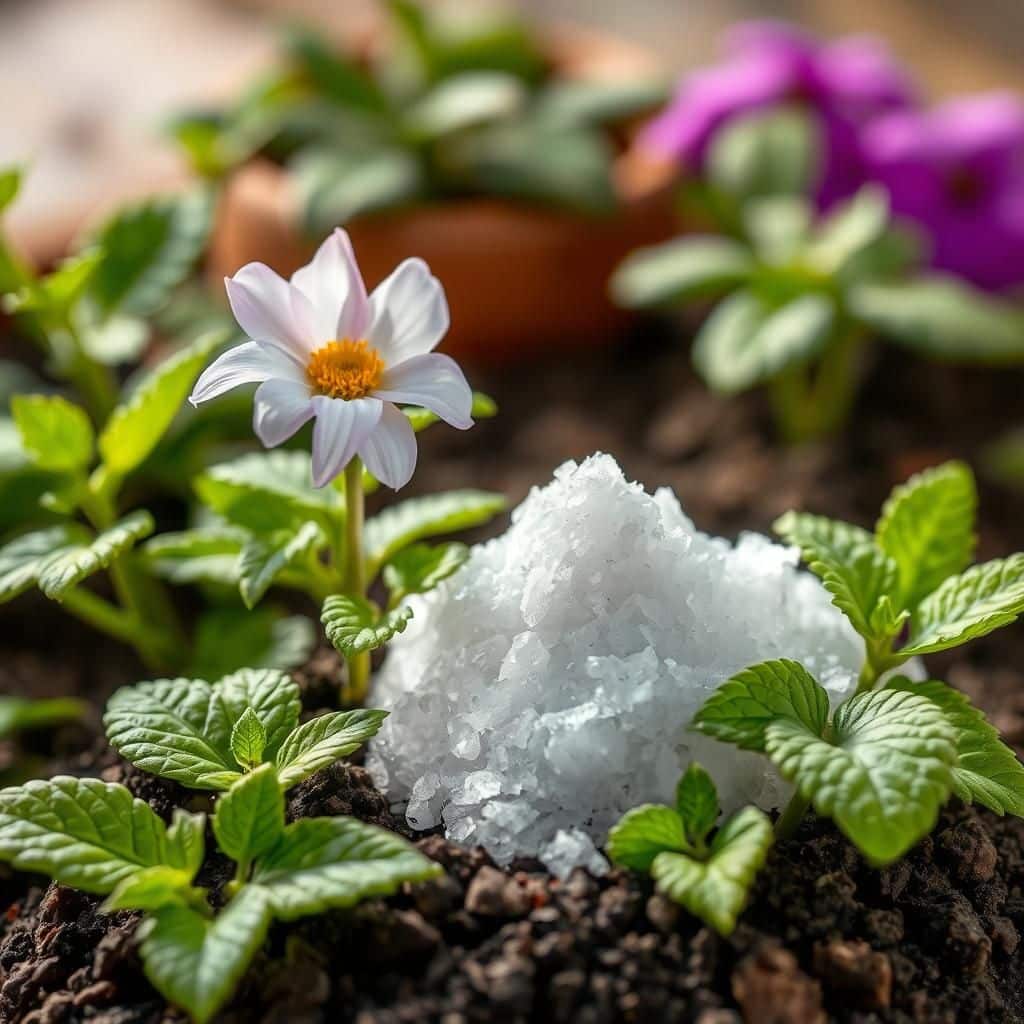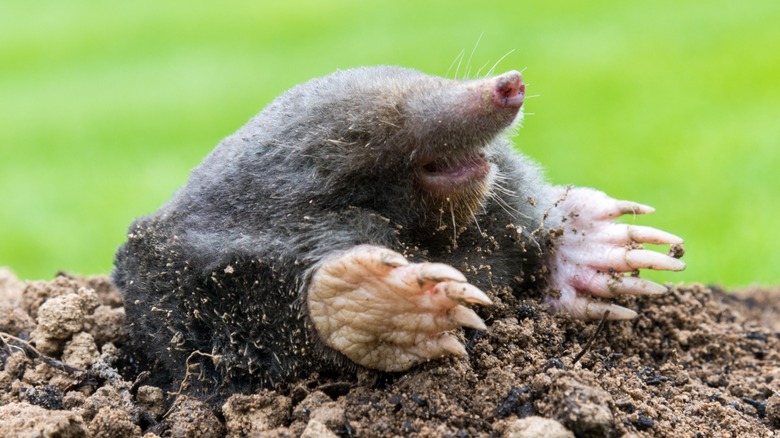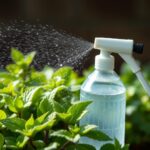What Does Epsom Salt Do to Plants? Discover the Benefits and Uses in Gardening

Epsom salt, chemically known as magnesium sulfate, has gained popularity among gardeners for its potential benefits to plant health. Often touted as a natural remedy, it is believed to enhance soil quality and promote nutrient absorption, leading to stronger, more vibrant plants. But what exactly does Epsom salt do for your garden? In this article, we'll explore the various benefits of using Epsom salt, from improving seed germination to increasing flowering and fruit production. Discover how this simple compound can make a significant difference in your gardening efforts and help you cultivate thriving plants throughout the growing season.
Benefits of Epsom Salt for Plants
Epsom salt, which is chemically formed from magnesium sulfate, provides essential nutrients that can significantly enhance the health and growth of plants. It is particularly rich in magnesium, a vital component in the process of photosynthesis, as it helps plants absorb sunlight more efficiently. Additionally, the sulfur content in Epsom salt aids in the production of amino acids, which are crucial for plant growth and development. When applied to the soil or foliage, Epsom salt can improve nutrient uptake, promote flowering, and enhance the overall vigor of plants, making it an excellent natural fertilizer for both indoor and outdoor gardening.
How Epsom Salt Affects Nutrient Uptake
Epsom salt plays a crucial role in enhancing the absorption of key nutrients in plants. Magnesium helps facilitate the movement of nitrogen, phosphorus, and potassium into plant cells, enabling healthy growth and development. When plants are provided with sufficient magnesium, they can synthesize chlorophyll more effectively, which leads to an improved ability to capture sunlight and convert it into energy. Thus, a regular application of Epsom salt can help prevent nutritional deficiencies and ensure that plants thrive.
Role of Magnesium in Plant Health
Magnesium is one of the macronutrients essential for plant health, being a core component of chlorophyll. It plays a significant role in photosynthesis, allowing plants to convert sunlight into energy efficiently. Without adequate magnesium levels, plants can experience symptoms such as yellowing leaves and reduced growth. By incorporating Epsom salt into the soil, gardeners can boost magnesium supply, leading to lusher foliage, more abundant flowers, and higher crop yields.
Using Epsom Salt for Flowering Plants
Epsom salt is known to improve the flowering and fruiting of plants. The magnesium in Epsom salt promotes the production of flowers, leading to more vibrant blooms and increased fruit development. Many gardeners report that using Epsom salt results in more colorful and abundant flowers, particularly in plants like roses and tomatoes. For optimal results, it is recommended to apply Epsom salt during the flowering stage, ensuring that plants have the nutrients needed to thrive.
Application Methods for Epsom Salt
There are several effective methods for applying Epsom salt to plants to maximize its benefits. One common approach is to dissolve one to two tablespoons of Epsom salt in a gallon of water to create a nutrient solution. This can be used as a foliar spray or as a soil drench, allowing for direct absorption by roots or leaves. Alternatively, gardeners can sprinkle dry Epsom salt around the base of plants and water it in, providing a slow-release source of magnesium and sulfur.
See also:
Potential Risks of Epsom Salt Usage
While Epsom salt can offer numerous benefits to plants, it is important to apply it in moderation to avoid potential risks. Over-application can lead to salinity issues in the soil, which may hinder plant growth and nutrient uptake. It's essential for gardeners to monitor their plants for signs of nutritional imbalances or excess salts. Conducting a soil test can also help determine the appropriate amount of Epsom salt needed to ensure optimal plant health without risking damage.
| Nutrient | Function | Benefit |
|---|---|---|
| Magnesium | Essential for chlorophyll production | Enhances photosynthesis and plant growth |
| Sulfur | Helps in protein synthesis | Promotes flowering and overall vigor |
| Nitrogen | Vital for growth and development | Improves leaf health and color |
| Potassium | Regulates water retention and nutrient transport | Strengthens plant resilience and fruit quality |
What animals are repelled by Epsom salt?

Epsom salt, chemically known as magnesium sulfate, is commonly used in gardening and pest control. One of the intriguing properties of Epsom salt is its ability to repel certain animals. While it is primarily known for its health benefits and uses in gardening, its repellent qualities make it a useful tool for homeowners facing specific animal issues.
Rodents
Epsom salt is known to repel some rodents effectively. The high magnesium content can create a hostile environment for these critters. Rodents, such as mice and rats, are often deterred by the strong odor and taste of Epsom salt. Applying Epsom salt around areas where rodents are prevalent can discourage them from entering your property.
- Rodents possess sensitive noses; the smell of Epsom salt can be off-putting.
- Using Epsom salt in gardens can help keep rodents from burrowing.
- Regular application can lead to the complete avoidance of certain areas by rodents.
Snails and Slugs
Epsom salt is particularly effective in repelling snails and slugs. These creatures are known for their destructive feeding habits and can wreak havoc in gardens. By sprinkling Epsom salt around plants, gardeners can create a barrier that slugs and snails will avoid, protecting their plants.
- The salt dehydrates slugs and snails, making it unsuitable for their movement.
- A ring of Epsom salt can prevent these pests from reaching plants.
- It is a natural alternative to chemical pesticides.
Deer
While deer are not directly repelled by Epsom salt, when mixed with other ingredients, it can help create a deterrent for these animals. Deer tend to avoid plants that have a strange or unpleasant taste, and Epsom salt’s bitter flavor can help make certain fruits and vegetables less appealing.
See also:
- Mixing Epsom salt with water and spraying it on plants can create an unappealing taste.
- Combined with other strong-smelling substances, Epsom salt enhances the effect.
- Regular applications may condition deer to steer clear of treated areas.
Pests in Soil
Certain pests present in the soil, such as grubs and other small insects, may be deterred by Epsom salt. The presence of magnesium sulfate can disrupt the habitat that these pests prefer, making it less appealing for them to thrive in treated soil.
- Epsom salt can alter soil salinity, negatively impacting pest survival.
- It can be mixed into the soil to enhance its overall health, indirectly repelling pests.
- This method can lead to healthier plants and reduce the likelihood of pest infestation.
Fish
While not an animal that typically frequents gardens, Epsom salt can be detrimental to certain types of freshwater fish if introduced into their environment in large quantities. Using Epsom salt can raise the salinity level of the water, which can be harmful to many fish species.
- Entering aquatic habitats can lead to salt toxicity in sensitive fish species.
- Fish such as goldfish and guppies are particularly vulnerable to changes in their water conditions.
- Care should be taken to avoid using Epsom salt near ponds or aquariums.
Questions from Our Readers
What is Epsom salt and how does it benefit plants?
Epsom salt, which is chemically known as magnesium sulfate, can enhance plant growth by providing essential nutrients like magnesium and sulfur. These nutrients play a key role in photosynthesis and can improve nutrient uptake, leading to healthier and more vigorous plants.
How do I use Epsom salt for my plants?
You can use Epsom salt by dissolving 2 tablespoons in a gallon of water and applying it as a foliar spray or soil drenching. This method ensures that the plants receive the nutrients effectively, promoting lush growth and improving nutrient absorption.
Which plants benefit most from Epsom salt?
Many plants such as tomatoes, peppers, roses, and houseplants can greatly benefit from Epsom salt. These plants often require higher magnesium levels, which can help enhance flower production and overall vitality.
Are there any risks associated with using Epsom salt on plants?
While Epsom salt is generally safe for most plants, overuse can lead to an excess of magnesium in the soil, which might interfere with the absorption of other critical nutrients like calcium and potassium. It is important to use it sparingly and monitor your plants for signs of nutrient imbalance.
See also:

If you want to read more articles like What Does Epsom Salt Do to Plants? Discover the Benefits and Uses in Gardening, we recommend you check out our Plants category.
Leave a Reply
Related Articles